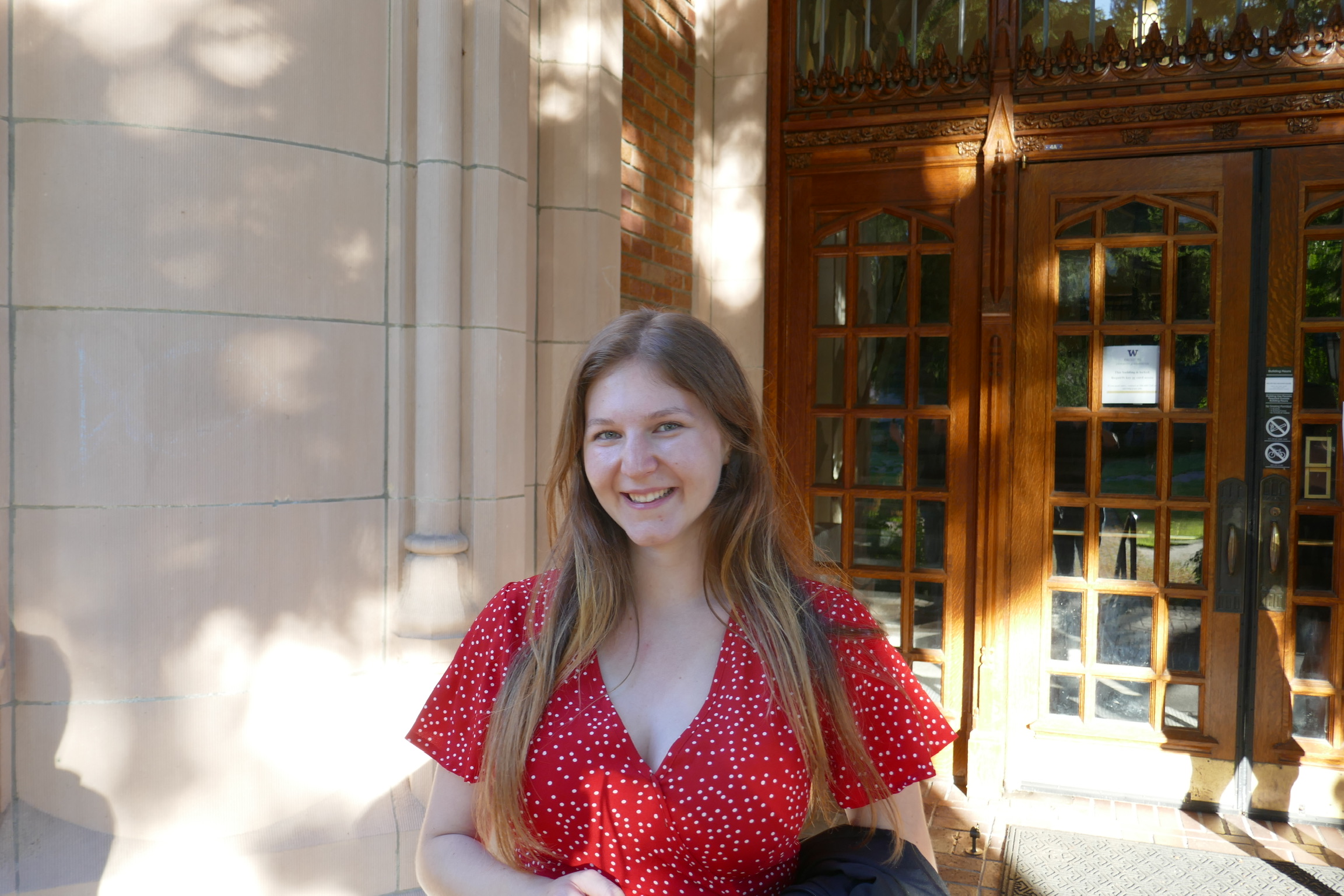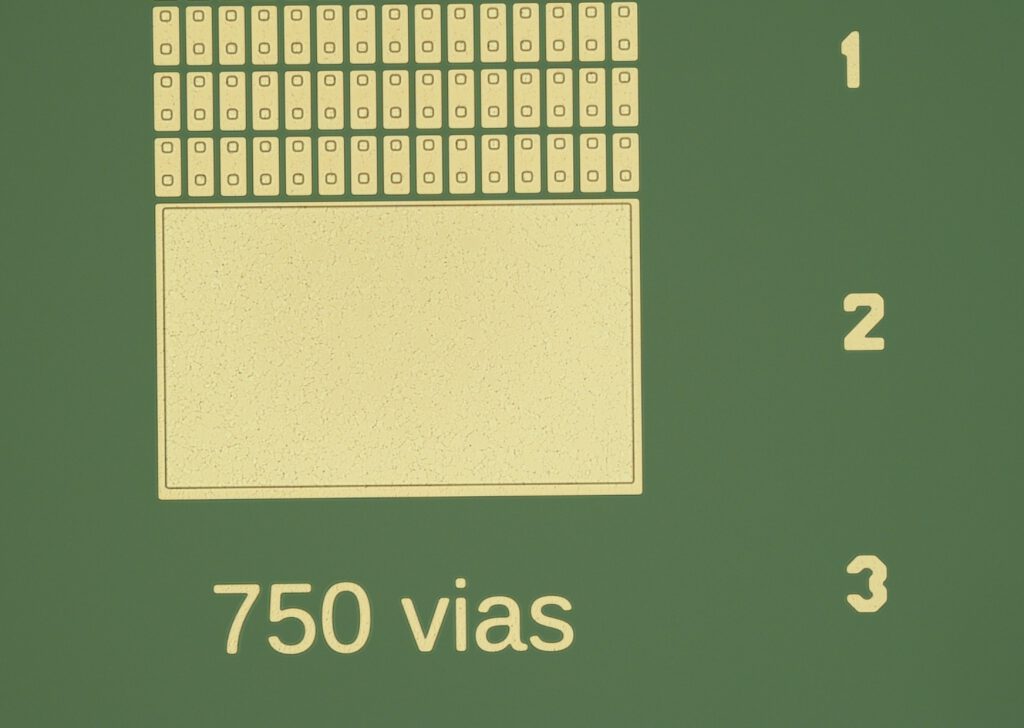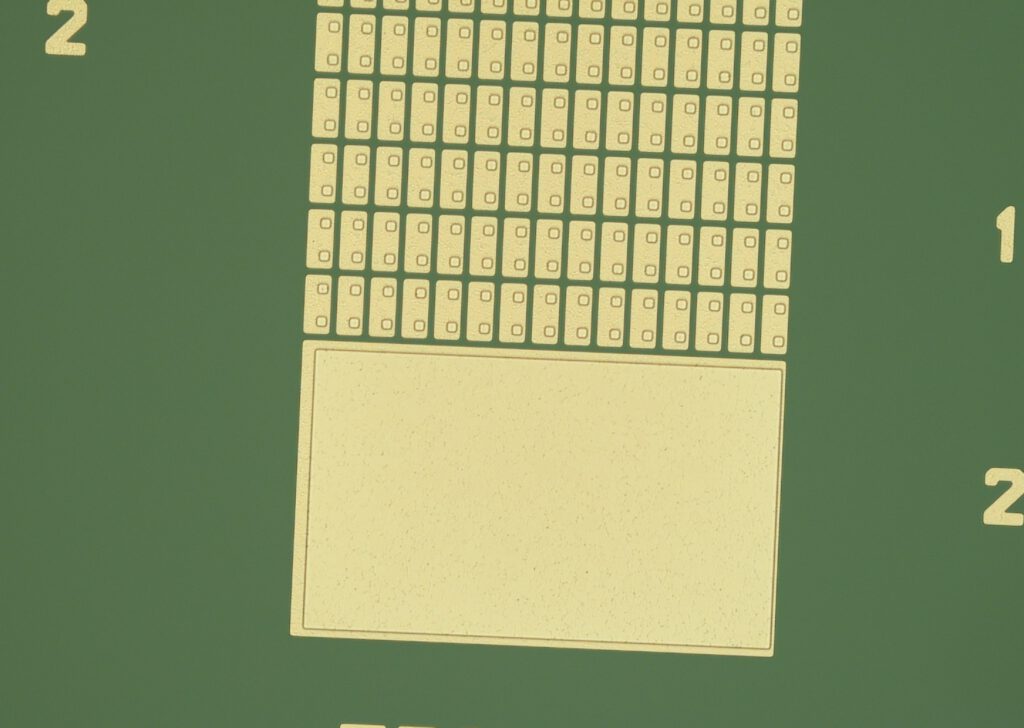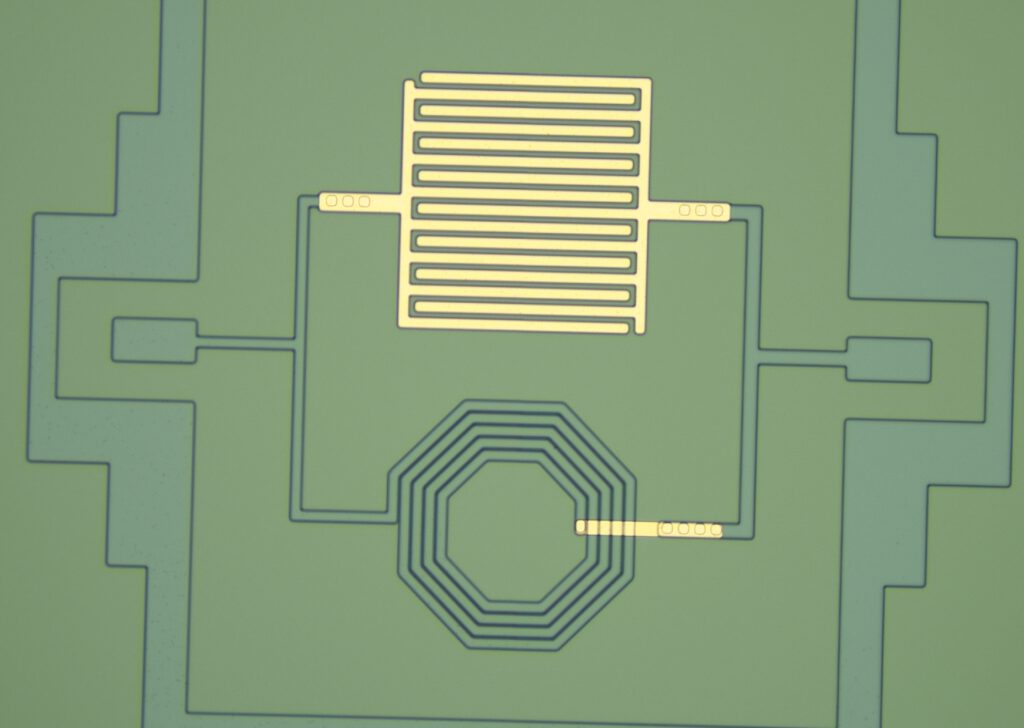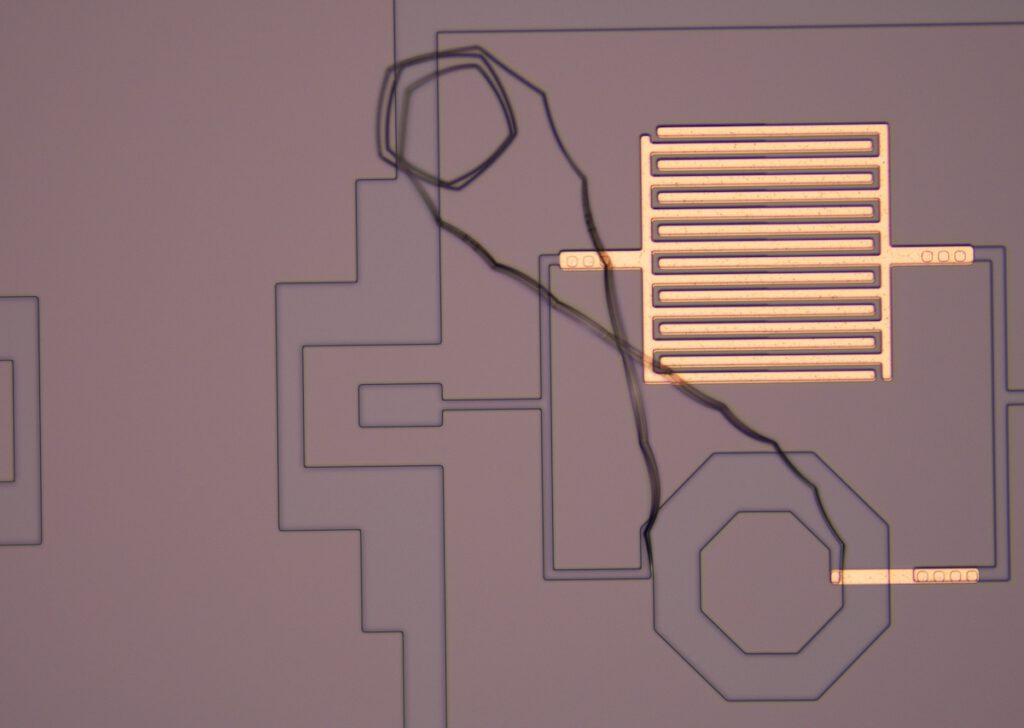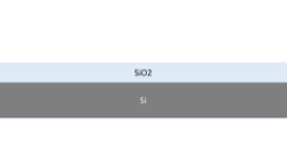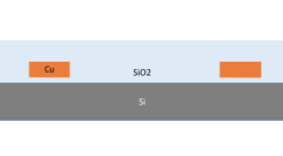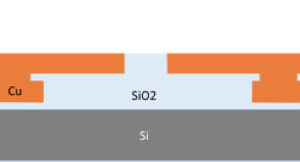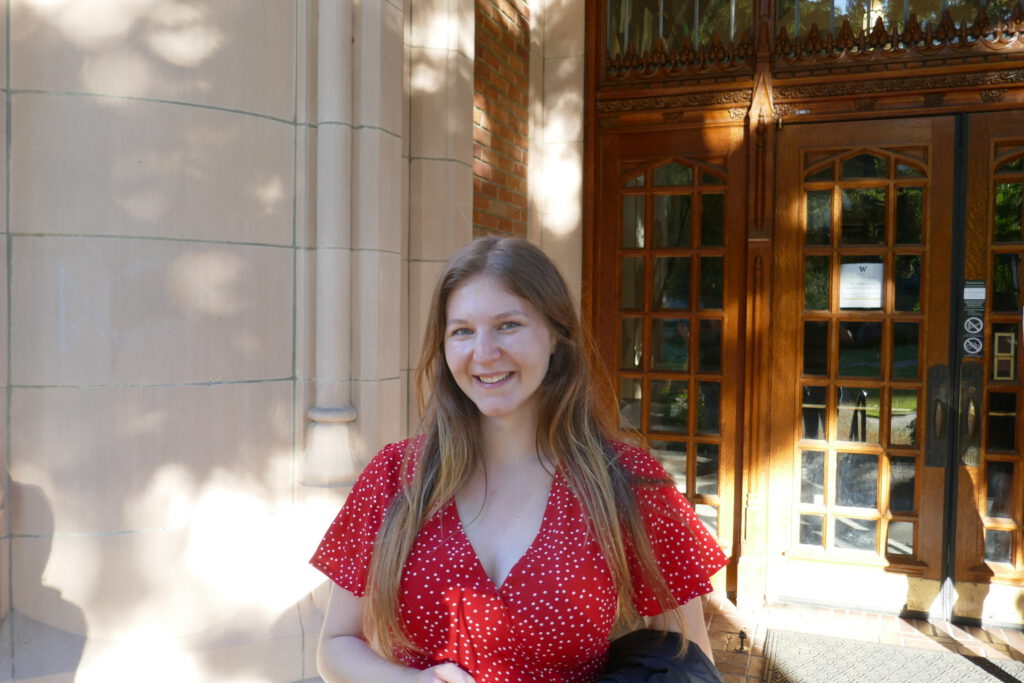
Ana Constantin joins Facebook after three years of undergraduate and professional experience at the Washington Nanofabrication Facility
April 30, 2021
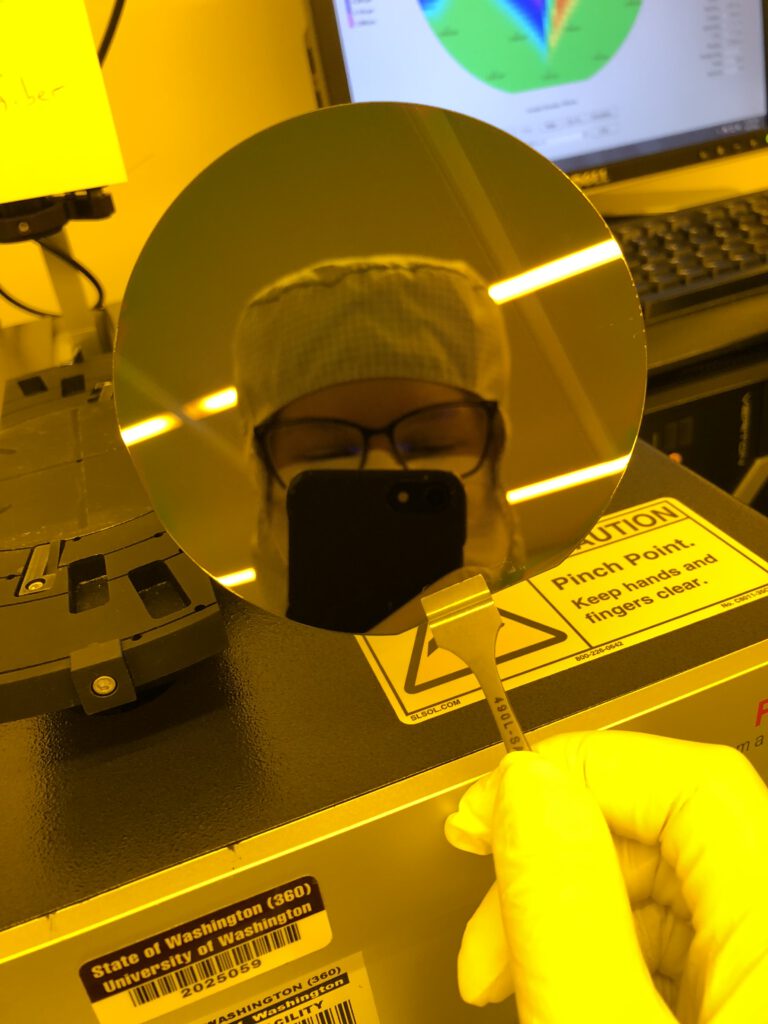
As a sophomore majoring in biochemistry at the University of Washington, Ana Constantin was searching for opportunities to apply her knowledge and gain real-world experience to prepare her for the job market. Through the UW Career Center’s Handshake tool, she applied to the Undergraduate Lab Assistant program at UW’s Washington Nanofabrication Facility (WNF) and joined the lab in June 2018. After graduating in June 2020, she accepted a full-time position at WNF as a Junior Process Engineer, working closely with Research Engineer Dr. Fred Newman. In March 2021, Constantin joined Facebook as a Process Engineering Technician. We caught up with Constantin to discuss her experience training and working at the WNF and how it prepared her for her next career move.
Why did you decide to apply to WNF’s undergraduate lab assistant program? As a biochemistry major, I knew I wanted to work in a lab, and WNF really stood out to me because of the specific engineering aspects. But when I interviewed, it was clear that WNF and its personnel were passionate about teaching students and helping us learn the ropes in the industry — that’s what sold me on coming to work here!
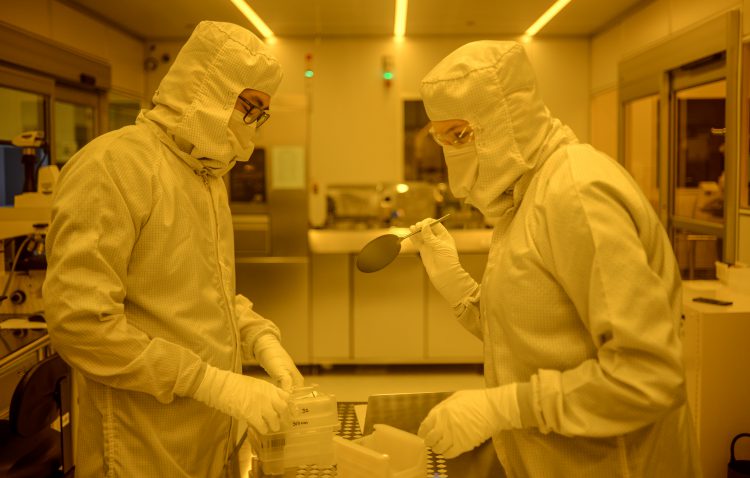
What skills did you learn as an undergraduate lab assistant? As an Undergraduate Lab Assistant, I was able to learn a lot of valuable nanofabrication basic skills and industry processes, including photolithography, etching, deposition, and many more!
After graduating, you accepted a full-time role at WNF. What was your favorite project while working as a Junior Process Engineer?
I was able to further develop my all-around skillset in nanofabrication, but I am especially proud of how I helped develop a damascene process flow using the tools in our facility. A damascene process is an additive process that utilizes deposition and patterning of successive layers to produce interconnected copper patterns separated by an interlayer dielectric. Damascene processes can be used in a wide variety of semiconductor applications, but for this specific project, we created an integrated passive device to test a variety of components, like transistors.
Throughout this process, I was able to get trained on many tools, including the Solstice Electrodeposition tool, the Chemical Mechanical Polisher, the Nanospec Optical Profilometer, and the PECVD-SPTS, all the while honing in my previous knowledge of other etch, metrology, and lithography tools.
Perhaps most importantly, I had the opportunity to spearhead the development of this process. By leading my own project, I was able to build upon prior critical thinking skills, reasoning, and tool troubleshooting knowledge, and that’s given me confidence as I head into industry.
What was your favorite part of day-to-day life at WNF?
Our community at WNF emphasizes collaboration, and I loved working with the other engineers at the facility. I got the opportunity to adjust etch tools, work on remote industry projects, troubleshoot devices, and assist all sorts of users with their work. It was a really amazing environment for hands-on learning, and the other employees were incredibly patient, supportive, and excited to see UW students learning about nanofabrication.
Do you have any advice for undergraduates who are interested in a career in nanofabrication? Along with the Undergraduate Lab Assistant Program, I’d say to seek out challenges and embrace opportunities to learn and grow! You can learn about nanotech in a variety of ways—whether it’s listening to podcasts, reading about recent innovations, or even taking a Coursera class on the topic. There is also a great nanofab short course taught by the research engineers at WNF, which is often offered for UW students in the spring. Lastly, don’t hesitate to reach out to UW professors who have experience in the field! They’re excited to talk about their work with interested students.
For more information about the WNF Undergraduate Lab Assistant program, visit the WNF website or contact Lead Student Assistants Toshi Take and Yuliette Medina.
